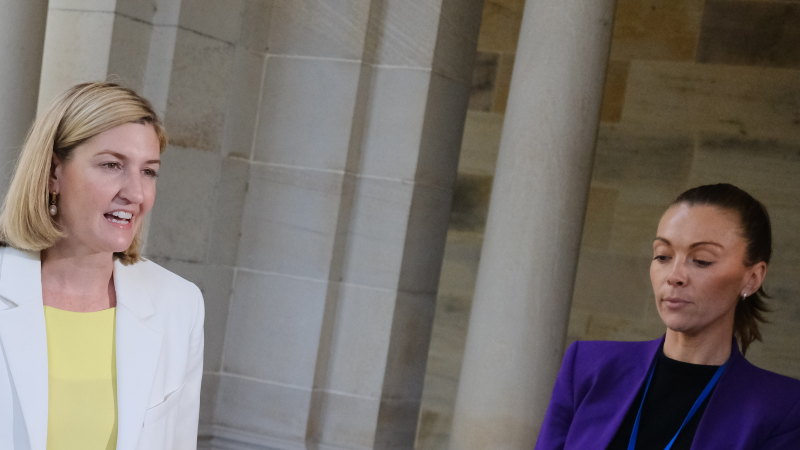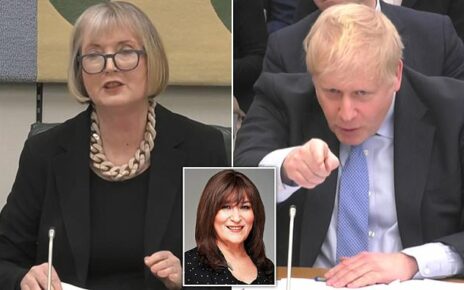Save articles for later
Add articles to your saved list and come back to them any time.
Labor Party rules shielding parliamentary leaders from the messy caprices of jittery backbenchers and ambitious ministers may in Queensland have the perverse effect of taking a seared and smarting government into a tangled and torturous summer.
It has been 10 years, almost to the day, since the ALP state conference changed its rules so the contested election of a leader would be determined by three separate equal-weight ballots of the caucus, rank-and-file members and affiliated unions.
Shannon Fentiman announces her Labor leadership bid on Monday afternoon.Credit: Matt Dennien
The move shadowed similar reforms introduced at the federal level by Kevin Rudd earlier in 2013. His changes democratised the elections of parliamentary leaders. More importantly in the toxic coup-and-revenge-coup context of the era, they made it harder for future colleagues to roll their future bosses.
On the other side of the democratised coin, however, are the protracted, chaotic optics of a leadership contest potentially spanning weeks rather than the duration of a single caucus vote.
When Bill Shorten beat Anthony Albanese at the federal level in 2013, the process took about a month.
No one in Queensland Labor wants this. Such wrangling might pass in opposition, but governments are held to higher standards. The Labor cabinet has a state to lead during a potentially difficult fire and cyclone season. The Christmas holidays could delay an outcome even longer.
Queensland’s three-ballot rules have never been tested in the wild. Annastacia Palaszczuk’s ascension to the opposition leadership in 2012 came before the changes. This time around, the party could be in for a bruising, weeks-long battle.
Getting in first, Steven Miles declared his intentions to lead the party almost immediately after Palaszczuk’s exit announcement on Sunday. Shannon Fentiman entered the contest on Monday, declaring she was confident she had her colleagues’ support. Cameron Dick, another frontrunner, was yet to raise his head at the time of writing.
The government’s fortunes for the October 2024 election might depend to some degree on whether these big three can arrive at a peaceful solution in the next week.
The LNP opposition would delight in a contested nomination. While the contenders campaigned among unions and party members, David Crisafulli and Jarrod Bleijie, clutching their prop folders for the TV cameras, would rail on the government for looking selfishly inwards instead of empathetically outwards to struggling Queenslanders.
This already appears to be a deep concern for Miles, particularly as Tropical Cyclone Jasper approaches the far-north coastline.
“I understand your interest in that,” he responded to the many leadership questions from journalists on Monday. “My focus today is absolutely 100 per cent on the safety of Queenslanders and making sure we are adequately prepared for the cyclone.”
Fentiman, on the other hand, had few qualms over making the afternoon news cycle about her leadership ambitions, running through her priorities and how she planned to salvage the government’s flagging 2024 election hopes. Having backed herself in, she had little choice but to go public and go hard, cyclone or not.
A potentially destabilising factor for the government is the view among some within Labor that a contender cannot be the incumbent. If held to be true, it could mean someone new assuming the role of acting premier for the summer so Miles has space to run. It is an ugly thought for a government already on the nose.
Labor hopes to transition to new leadership as smoothly and quietly as possible. To spare it a weeks-long festival of internal politics, there is an expectation within the party that the candidate who fails to win over their parliamentary colleagues will make an early and dignified exit. Whether this happens is another matter.
Most Viewed in Politics
From our partners
Source: Read Full Article




